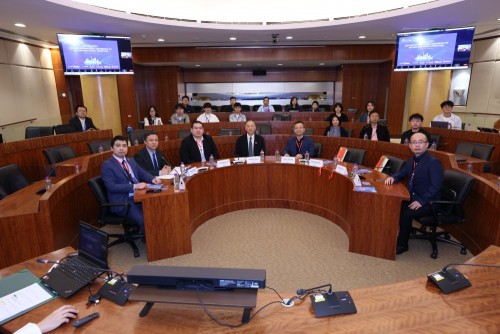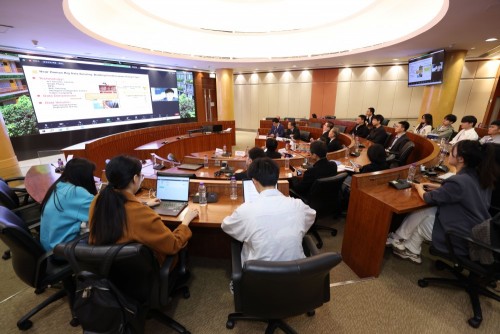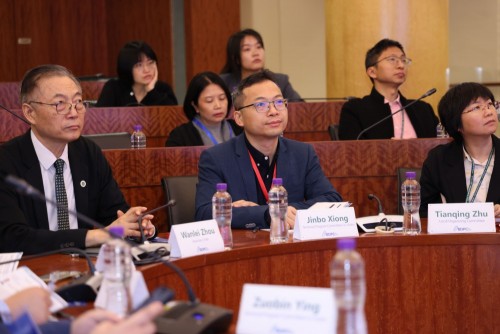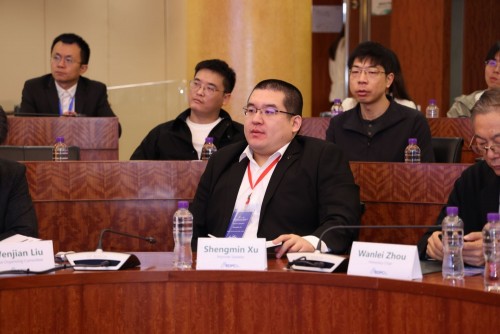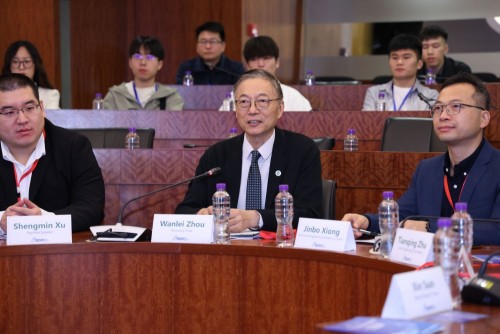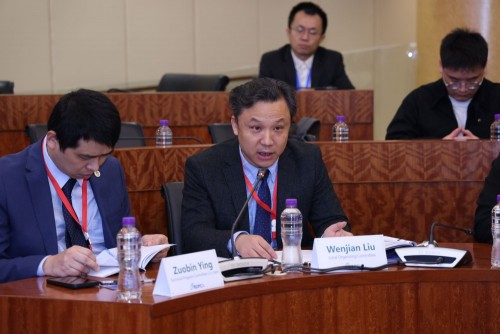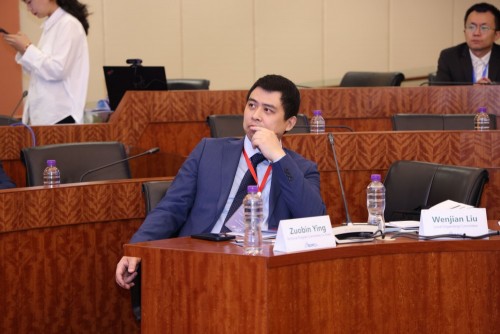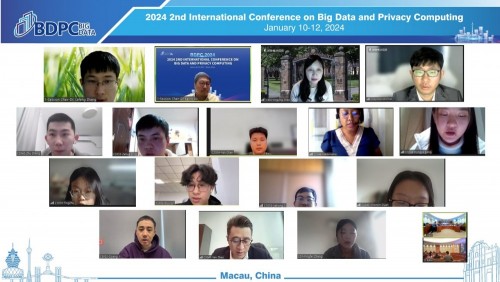The 2024 2nd International Conference on Big Data and Privacy Computing (BDPC 2024), hosted by the City University of Macau and supported by the Institute of Electrical and Electronics Engineers Macau (IEEE Macau), Guizhou University, Fuzhou University, and Fujian Normal University, opened on January 11 at the university. Over a hundred experts, scholars, and industry professionals from related fields participated in the conference through a combination of online and offline formats, sharing the latest research results and exploring cutting-edge issues and development directions around the conference theme for two consecutive days.
The opening ceremony of the conference was presided over by Professor Xin Sun from the Faculty of Data Science at City University of Macau. Wanlei Zhou, Vice President of City University of Macau and Dean of the Faculty of Data Science, and Wenjian Liu, Vice Dean of the Faculty of Data Science, attended the event and delivered speeches. Professor Wanlei Zhou thanked the speakers and the conference organizing committee for their efforts in promoting this event, introduced the disciplinary development and educational achievements of City University of Macau, and hoped that the participants would have a fruitful academic exchange trip in Macau. Associate Professor Wenjian Liu, on behalf of the organizing committee of the conference, congratulated the convening of this conference, warmly welcomed all the experts and scholars attending the conference, encouraged participants to have extensive exchanges during the conference, and expressed sincere gratitude to the conference preparatory committee.
The conference will be presented entirely in English. On the first day of the conference, renowned domestic and foreign experts such as Professor Min Chen from South China University of Technology, Professor Yingying Chen from Rutgers University in the United States, Associate Professor Shengmin Xu from Fujian Normal University, and Professor Ximeng Liu from Fuzhou University were invited to give keynote speeches. Associate Professor Xiaofen Wang from the University of Electronic Science and Technology of China was also invited to give a special lecture.
Professor Min Chen from South China University of Technology (IEEE Fellow, IET Fellow, AAIA Fellow) delivered a keynote speech titled "Digital Intelligent World Empowered by Near Human Big Data Sensing". Professor Chen pointed out that providing ultra-low latency, non-invasive, and immersive service experiences in future networks brings various challenges, among which continuously obtaining multimodal information without interfering with users is crucial. He introduced the development of various functional structures, on which the body area network can support intelligent release models without devices in the digital intelligent world.
Professor Yingying Chen from Rutgers University (NAI Fellow, IEEE Fellow, AAIA Fellow, ACM Distinguished Scientist) gave a report titled "AI Driven Efficiency and Security in Edge Sensing and Computing: Advances, Vulnerabilities, and Opportunities". The main discussion focuses on the latest developments in artificial intelligence edge sensing and computing achieved through hardware and software collaborative design, as well as the implementation of artificial intelligence on devices, emphasizing their important contributions to achieving efficient inference.
Associate Professor Shengmin Xu from Fujian Normal University (selected for the National High level Youth Talent Program (Overseas)) gave a report titled "Towards Security, Functionality and Efficiency of Cloud Data Access Control", pointing out that data is an important strategic asset of the country and data security is an indispensable component of national security. Associate Professor Xu shared an architectural paradigm called bilateral access control, which enhances the existing dual policy access control model.
Professor Ximeng Liu (IEEE Senior Member) from Fuzhou University gave a keynote speech on "Secure Outsourced Computation: Current and Future Trends", providing a new secure outsourcing computing framework that balances efficiency and security. This framework can be used to build secure outsourced data mining and analysis for practical applications in electronic healthcare, remote identity verification, and more.
On the same afternoon, two offline special meetings were held to discuss "Intelligent Recommendation Algorithms and Software Detection Based on Data Models" and "Advanced Blockchain Theory and Data Security". The sub meetings were chaired by Professor Kiwon Lee from Hancheng University in South Korea and Associate Professor Zuobin Ying from the Faculty of Data Science at City University of Macau. Associate Professor Xiaofen Wang from the University of Electronic Science and Technology of China also published a report titled "A Dropout Tolerated Privacy Preserving Decentralized Federated Learning Framework", proposing a new privacy preserving distributed federated learning scheme system that utilizes blockchain and modified identity-based broadcast encryption algorithms. This scheme can achieve privacy protection and tolerance for errors/packet loss.
On the second day of the conference, two online themed meetings will be held, chaired by Assistant Professor Lefeng Zhang from the Faculty of Data Science at City University of Macau and Dr. Wenfeng Lu from the University of Hong Kong, a member of the conference's technical committee. Attendees will discuss the themes of "Data Analysis and Privacy Protection" and "Wireless Communication Networks and Image Analysis".
All articles in this conference have been strictly reviewed by the program committee. The final accepted articles will be published by IEEE in the form of BDPC 2024 conference proceedings and included in the IEEE online database, which can be searched by EI and SCOPUS.

